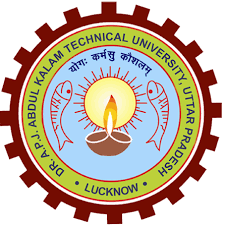The curriculum for a Ph.D. degree in earthquake engineering combines many different fields of engineering. The main focus of this degree is to study the impact of earthquakes on structures. The curriculum consists of coursework, research, and a comprehensive examination. The student must take three different exams and pass all of them in order to complete their doctorate program. The first year of study requires students to complete four courses while the other two require at least one.
During the doctoral program, you will gain knowledge and expertise in various aspects of the field. The program will focus on the fundamentals of earthquake engineering, as well as the application of this knowledge to coastal oceanography, wet earth, and the atmosphere. Your research will include a variety of different projects, from earthquake simulation to building design to mitigation. You will learn to study the effects of the occurrence of major quakes on cities and the environment.
In addition to the written exams, the student must pass a comprehensive examination. A Ph.D. in earthquake engineering requires a doctoral dissertation based on original research. Applicants should be able to demonstrate an ability to analyze the effects of earthquakes on structures. The coursework is devoted to the study of structural and geotechnical engineering, and the program is renowned for its quality.
Ph.D. Earthquake engineering Eligibility
Candidates who want to take admission in Ph.D. must have a post-graduate degree Earthquake engineering in and its relevant discipline with at least 55% marks from a recognized university and must have passed the national level entrance examination or university level entrance examination. National level entrance exams like UGC NET / UGC CSIR NET / GATE / SLET or University entrance exam consisting of written tests and personal interviews.
Benefits of a Ph.D. in Earthquake Engineering
The field of earthquake engineering is a growing one. There are numerous benefits to earning a Ph.D. in this discipline. The first is that you will receive full funding for the entire degree. This includes the cost of tuition and a stipend. In addition, all Ph.D. students receive full health benefits and insurance. You will also be able to work on projects that benefit communities.
The curriculum is unique and will allow you to apply your new knowledge and skills in the field. You will be able to work in the field with a wide range of clients, from government agencies to private companies. The program will prepare you for a variety of career options and allows you to work on projects while continuing your education.
The Career and Job Opportunities of Ph.D. in Earthquake Engineering
After completing a Ph.D. in earthquake engineering, you may pursue research in a number of fields. In particular, you could focus on the engineering of structures that are prone to earthquakes. You might also be interested in seismic testing. The field of earthquakes is growing rapidly. You can even join a prestigious institute and start working right away. With a Ph.D. in earthquake engineering, you can expect to make a lot of money.
After graduating with a Ph.D. in earthquake engineering, you'll be prepared for a variety of jobs related to earthquakes. You'll be able to help prevent and mitigate future catastrophes. Those who are involved in earthquake research have a wide range of career options. A Ph.D. in earthquake engineering will allow you to work in the field of engineering - and you'll be able to contribute to society.
The Future Scope of Ph.D. in Earthquake Engineering
The doctoral program in earthquakes engineering has become one of the most sought-after in the engineering field. This discipline involves studying and understanding the demeanor of structures that are subjected to earthquakes. It has many applications across engineering, civil and structural. This degree is ideal for individuals who wish to be involved in the future of the profession. These engineers are needed to provide solutions for preventing and mitigating the effects of earthquakes.
The future of the discipline is very promising. There are many jobs in this field, and the field is growing at a rapid rate. Research activity in earthquake engineering is a leading driver of technology transfer, and there are plenty of opportunities for Ph.D. students. The program has produced numerous graduates with high-quality training in the field.
There are several job opportunities in this field. Moreover, the field is constantly evolving. The emergence of new technologies has resulted in the development of earthquake-resistant constructions. A Ph.D. in earthquake engineering is essential in order to advance in this field. The degree also opens the door for a variety of career paths. It prepares students for an array of jobs in engineering.
Ph.D. Research Programme duration
The Ph.D. Earthquake Engineering course is minimum of 3 years and a maximum of 5 duration. This depends on the university offering the course.
Fees for research program for Earthquake Engineering
The average fee for Ph.D. Earthquake Engineering degree is between INR 50000 and INR 500000.
 5 Years
5 Years
 PhD
PhD
 Research
Research















 back
back